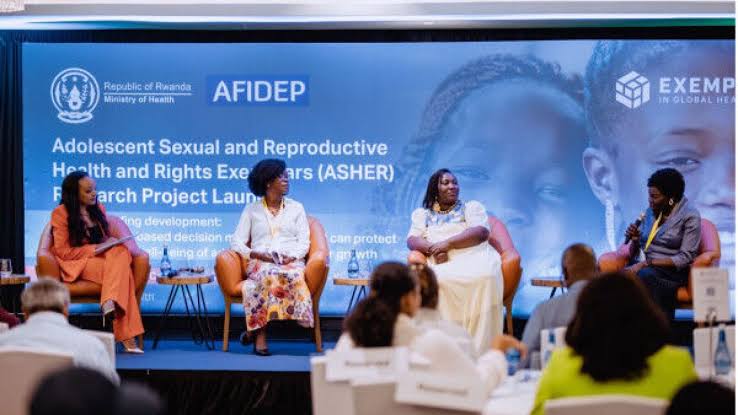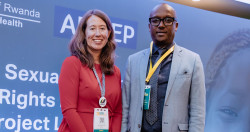6 Countries Show Exemplary Progress In Adolescent Sexual & Reproductive Health And Rights

Exemplars in Global Health (EGH), a programme which studies countries that have made exemplary progress in global health to help policy makers make evidence and data informed decisions, has launched a new research project on adolescent sexual and reproductive health and rights (ASRHR) on the sidelines of the Women Deliver 2023 Conference (WD2023) conference in Kigali, Rwanda. Led by a multi-country network of researchers and youth advisors, the Adolescent Sexual and Reproductive Health and Rights Exemplars (ASHER) project will study how six countries, Cameroon, Ghana, India, Malawi, Nepal, and Rwanda, have made exemplary progress in reducing adolescent pregnancies and advancing ASRHR.
Investments in improving ASRHR have grown globally, but progress remains slow and uneven. Over 20 million pregnancies were recorded among adolescents aged 15-19 in low- and middle-income countries (LMICs) in 2019; nearly half of these pregnancies were unintended, and of these, 55% ended in abortions, which can often be unsafe. The research project will examine the policies and programs in each of the six Exemplar countries that drove positive ASRHR outcomes. The project also aims to highlight the lessons and best practices that can be applied both within Exemplar countries and in others facing similar challenges.
Prof. Dr. Claude Muvunyi, Director General of Rwanda Biomedical Centre, said, “Ensuring adolescent sexual and reproductive health is a priority for us. Our strategic priorities include creating an enabling environment for research and innovation, which ultimately informs policy. We are committed to using the forthcoming research to further strengthen our interventions around the critical factors that have been shown to improve ASRHR, develop innovative programs, and engage in strategic partnerships to ensure that every young person in Rwanda has access to comprehensive and youth-friendly services.”
The world is now home to the largest cohort of adolescents in history – 1.8 billion people between the ages of 10 and 19 – and this number is expected to rise through 2050, particularly in low- and middle-income countries (LMICs). With this new research topic, Exemplars in Global Health aims to inform and improve ASRHR policy to ultimately empower this cohort of adolescents, ensuring they’re able to continue contributing to the wellbeing and development of their own communities.
Local research organizations will lead in-depth research within each country while the African Institute for Development Policy (AFIDEP) will conduct cross-country analysis. The project also includes the participation of two youth advisors from each country to help shape the recommendations emerging from the findings.

Foster Mafiala, a Project Youth Advisor and Global Technical Advisory Group (TAG) member from Malawi, said, “As a young person, being invited to participate in shaping and conducting this research project means that I can have a voice in defining the questions we ask and the factors we explore to better understand adolescents’ needs and challenges. I hope the results of this project help our leaders develop adolescent- and youth-responsive health services and more equitable access to services for those of us who are most vulnerable, empowering all young people to make informed choices about their sexual and reproductive health.”
Nyovani Madise, Principal Investigator from African Institute for Development Policy (AFIDEP), emphasized that, “One of the best ways to support progress on any health issue is to learn from those who are succeeding in that area. By generating rigorous and objective analysis of the exemplary progress of these six countries on ASRHR, our consortium of cross- and in-country researchers hope to foster cross-country learning about what factors were most influential in the excellent progress we have observed to date. Ultimately, we aim to equip policy makers with the tools they need to improve the wellbeing of all young people.”
The results of the EGH ASHER research project are expected to be available in 2024 and will be published at www.Exemplars.Health.













